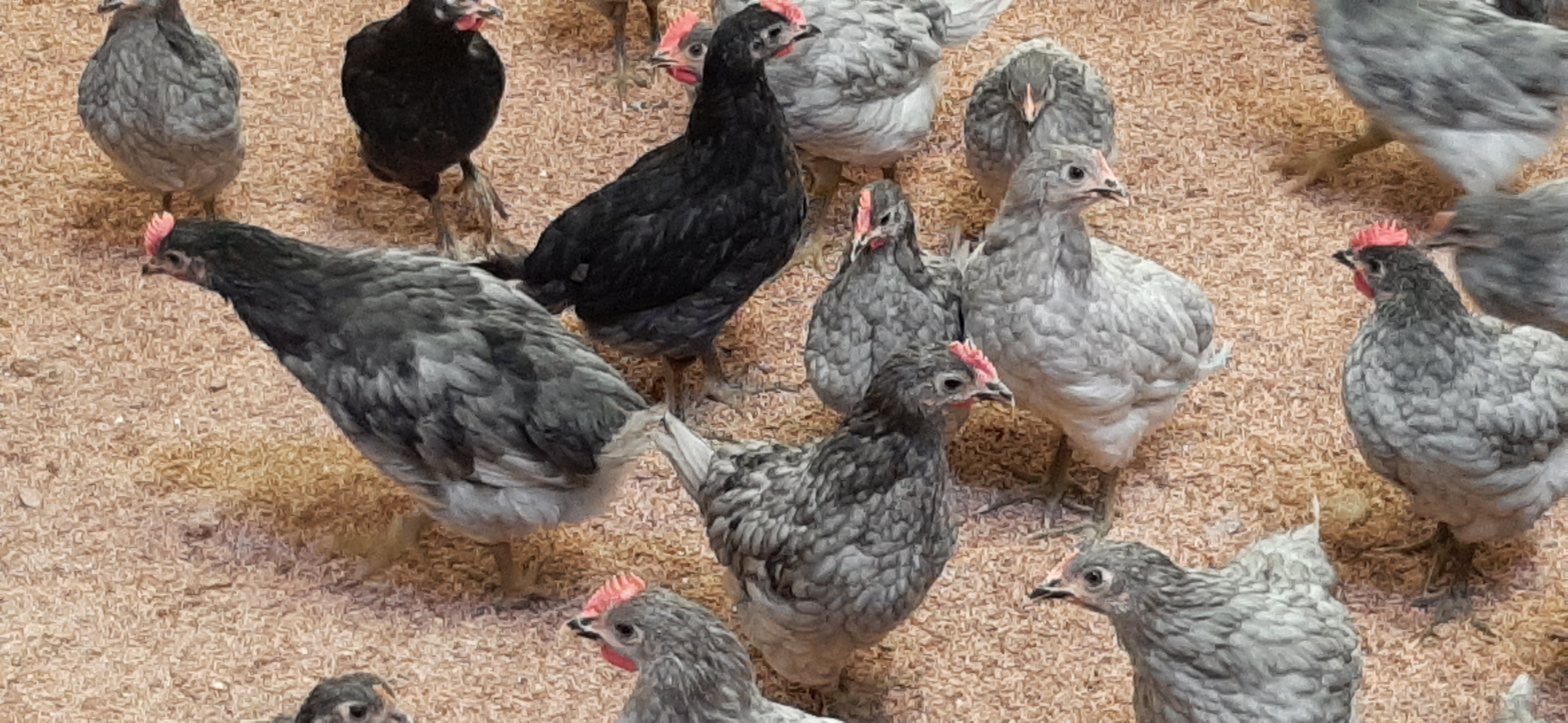Extremadura blue hen
 General information
General information
The flock of Extremadura Blue hen kept by CICYTEX at Finca Valdesequera was created in 1991 as a result of a recovery plan of autochthonous bird breeds. Since then, research projects have been carried out to consolidate and characterise this breed. In 2018 the Ministry of Agriculture, Fisheries and Food (MAPA, in its Spanish abbreviation) included it in its Official Catalogue of Spanish Livestock Breeds as an “endangered autochthonous breed” and in 2021 it authorised the use of the logo “100% autochthonous” on its products. CICYTEX is a member of the Extremadura Blue Hen Breeders Association (ACGEXA, in its Spanish abbreviation), which manages the Genealogical Book for this breed.
After thousands of years of selection work, autochthonous livestock breeds make up a world’s genetic heritage that, because of its biodiversity and adaptation to the environment, secures human nutrition for an unpredictable future. The survival of autochthonous bird breeds is currently threatened by industrial poultry farms, which employ specialised hybrids in order to produce intensively in highly-technological facilities. However, autochthonous hens can find a niche in the market, as their eggs and meat have a healthier composition and better organoleptic characteristics than those of hybrid poultry. These aspects, together with their genotype, become increased in organic and extensive breeding systems.
In Extremadura, an incipient alternative poultry industry has emerged (free-range, organic, agroecology, in extensive pasturelands or mobile pens, and agroforestry) with an interest in employing the only autochthonous hen breed of our Autonomous Community and add value to the “100% autochthonous” logo, involving the consumer in the preservation of the livestock genetic heritage.
 Participative research for the creation of an Autonomous Operating Group
Participative research for the creation of an Autonomous Operating Group
Autochthonous bird breeds are especially adequate for organic bird breeding, especially due to their productive and behavioural characteristics, and this is stablished in the specific regulations. However, except in some cases, these breeds are only commercialised through the leisure and exhibition market. This is the case of the Extremadura Blue hen, the value chain of which should be reinforced in order to introduce it into the production market, promoting its numbers and helping overcome its endangered situation. This is the objective of Autonomous Operating Group GALLIEXTREM, in which CICYTEX participates as an outsourced centre.
 Participative research with young farmers
Participative research with young farmers
Extremadura Blue hens are skilful predators and therefore breeding them in fruit tree plantations offers a biological system with pest control and direct fertilisation of the land. The assessment of this system in terms of animal wealth as well as animal and plant production has become a line of participative research with young organic farmers.
 Improvement of the reproduction parameters through plant-based food additives
Improvement of the reproduction parameters through plant-based food additives
As part of project COPLAGAN1, in 2022 we will analyse the effects of oregano added to the diet on the reproductive and productive indexes of this breed. For these purposes, the birds born in 2018 were renovated in 2021. Some of these reproductive birds came from eggs donated by ACGEXA. Therefore, two genetic lines were established: one with the offspring of the original group and another one with mixed Valdesequera-ACGEXA mating couples, which will allow the assessment of the crossing effects.
 Studies with hyperspectroscopy techniques
Studies with hyperspectroscopy techniques
Tests are being conducted prior to proposing a new line of research that would consist of applying hyperspectroscopy techniques for the determination of egg fertility and the chick’s sex, which would enable the introduction of the Extremadura Blue hen into the production system, as only the able eggs would be incubated and sex could be assigned before the third day of life, which is the limit established by law for entry in organic farms.





